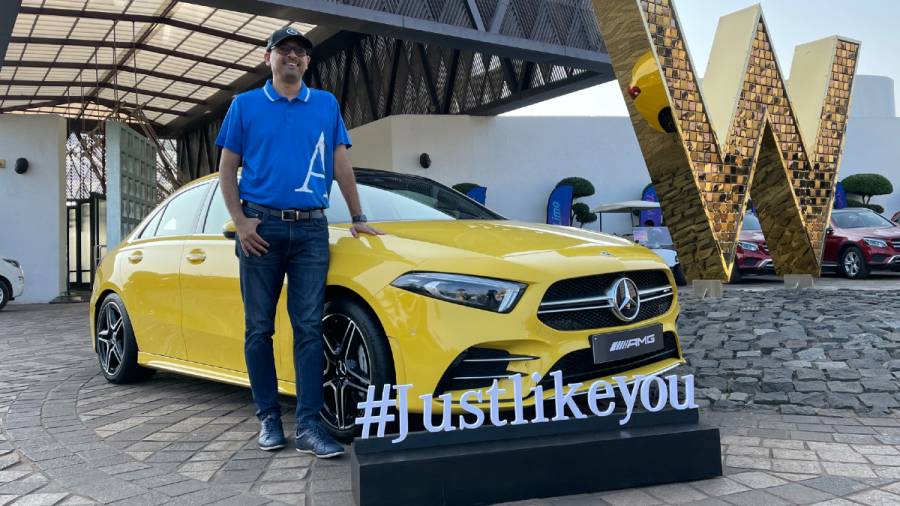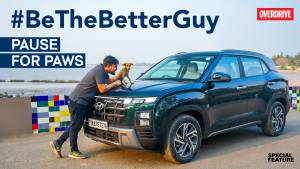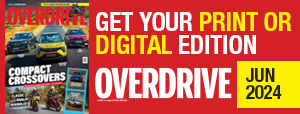In conversation with Santosh Iyer

In an exclusive conversation with Storyboard18, Iyer, vice president, sales and marketing, Mercedes-Benz India, talks about the impact of the pandemic on the brand-customer relationship, key marketing trends and why celebrities don't work well for a luxury automaker like Mercedes Benz.
How has the equation with your customer changed in the post-pandemic era?
The equation has changed for sure. After wave one and two the interest in sustainable products has gone up. During the pandemic and lockdowns people have witnessed nature reviving. Everybody realised that the automobile, as a category, is also responsible to society, especially in the chaos that we are in today, be it noise or air pollution. Somewhere there is an increased awareness for sustainability and sustainable products. Responsible customers are ready to pay a premium for it as well.
Sustainability is also about data and security as well. There is a lot of discussion about how data is secured since many of these cars are connected. Moreover, customers are becoming increasingly aware and they want brands to really take their consent before marketing technology (martech) tools such as retargeting campaigns are being activated.
What are the key demands and concerns of luxury customers in India?
Luxury customers get excited by products. Globally, we have more than five kinds of EVs. The biggest question that we keep getting from Indian customers is when are we bringing the entire EV portfolio to the country. They want more options; they want more products. That's why we want competition to come up with more products and the ecosystem to develop as fast as possible which will help all players in the long run.
EVs are designed for long-term at least for 10-15 years. The car batteries have a second life and their value does not diminish. Therefore, educating customers on these points is one of the biggest marketing challenges in the luxury segment.
What will be defining trends in marketing in India?
In the automobile category, there will be increased focus on EV products and communication compared to traditional cars. As a marketer, today we are investing in the EVs not for the current volumes but for the future. There is also a responsibility of all the brands to educate the customers. Basically, when we are looking at marketing investments compared to returns on sales it may not be correlational. If we don't invest now, we won't be able to shape up the market for the future.
It's the biggest dilemma and challenge for the marketers to accept and continue the investments in markets as far as EV products are concerned. It is also challenging for brands like ours which have both traditional internal combustion (IC) engines and EVs. On one hand, we need to ensure that the current business continues and we are also trying to transition. We are committed and we have made it clear that we won't have any IC engines product in the world by 2025.
What are your thoughts on celebrity endorsements in the auto category?
When you look at the luxury end of the spectrum, there are a mature set of customers in India. They own large businesses or head large corporate organisations. Influencing them with a celebrity association is a far-fetched topic, one can see through it and it has little credibility.
We put a lot of emphasis on being authentic, trying to communicate directly and also focus on experiential marketing. For us, if we can give our EV for a week/weekend to a customer that mitigates a lot of consumer concern while giving us a lot of natural social traction.
Usually, when we send a Mercedes Benz EV to a target customer's house he/she will put it up on social media while experiencing it. I believe that's better-earned content than paid content. But when I go back to the mass segment, I think celebrities and influencers can play a bigger role in influencing consumer behaviour.
What is the next big thing coming down the line in terms of technology when it comes to marketing?
The next big thing would be to communicate to the online audience in a cookie less world. How can brands create a proper CRM (customer relationship management) with the set of prospects and customers where we don't know them? The latest update from Apple allows users to protect their data and privacy. I think the challenge will be the next revolution of tech that we are able to communicate to our target group using third-party data in a precise manner. The martech challenge will be to communicate with the target audience in a personalised way.
What are some important lessons you've gathered in the past few months?
All I can say is that the crisis is the biggest opportunity to drive any transformation and change. We make use of the crisis and not get bogged down by it. For me, personal learning has been on two counts - always be agile and be human centric. Pandemic has brought out more human centric leadership and thought process in me personally than what it used to be before.
Related Stories
Top Stories
Latest Videos
Most Popular
Network18 Updates









